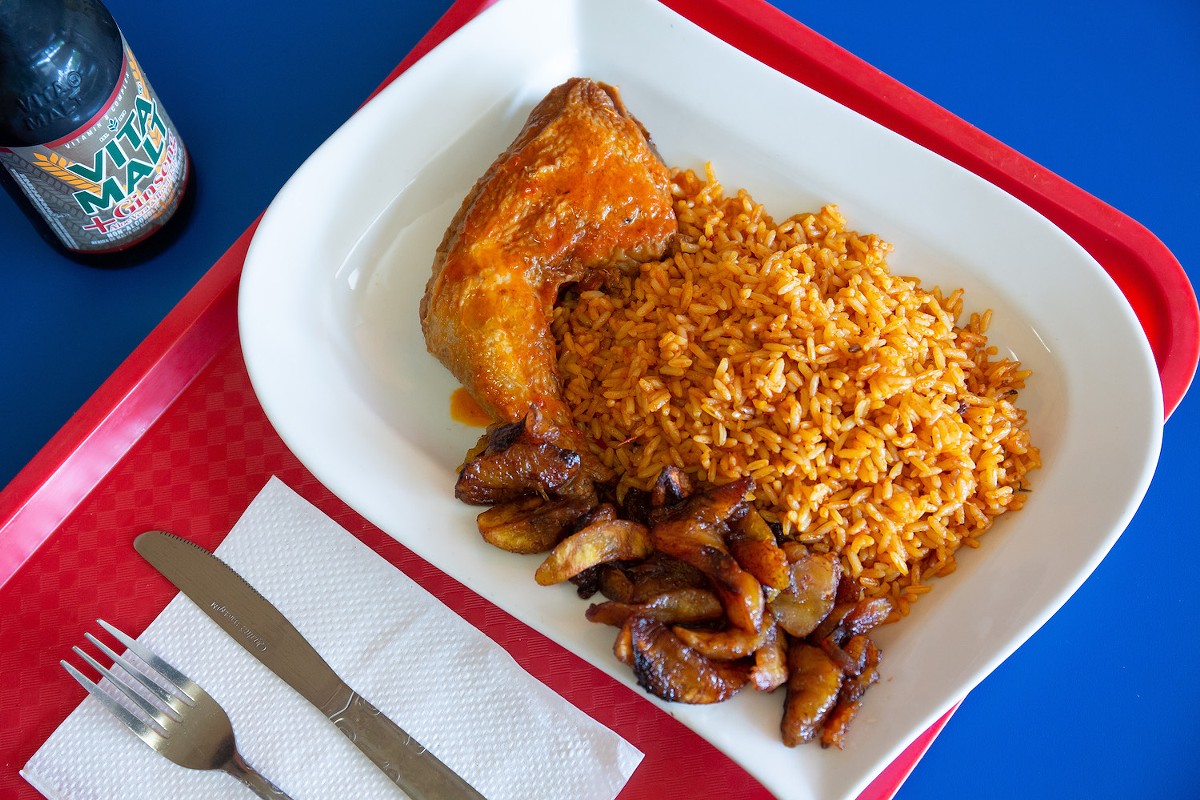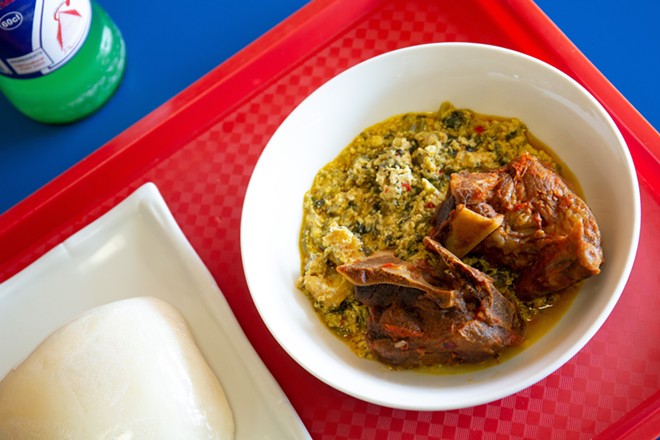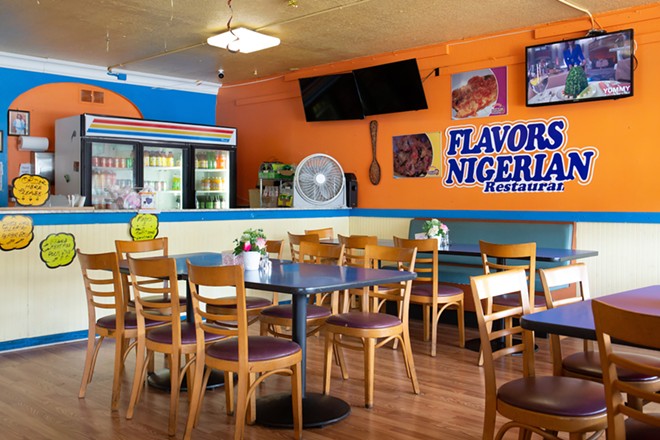There's a scene in No Passport Required where chef Marcus Samuelsson and Patricia Nyan, chef-owner of Suya Hut in Houston, talk about the importance of suya. The spice rub, originating from predominantly Muslim northern Nigeria, is made from peanuts and chili peppers and used to marinate grilled beef and chicken in Nigerian cookery. "Like all African countries," Samuelsson says, "Nigeria has many different tribes with many different opinions, but a dish like suya brings Nigerians together."
At Flavors Nigerian restaurant in SoDo, I chat with owner Ola Bello and her brother Zeke, who both echo the sentiment, and add: "In Nigeria, no matter your tribe or whether you're Christian or Muslim, we all eat the same food and we all eat together." Except during a pandemic, I think to myself before blurting into my mask, "Well, let me have an order of suya beef!"
Grilled meat, be it kushiyaki, shish kebab, koobideh, satay, mishkaki or souvlaki, is common denominator cuisine – an accessible entry point into a culture's fare. And the suya beef ($12.99) served here is no exception. It's not too tough, not too tender, and the light use of Cameroon pepper (made from dried scotch bonnets) won't set your tongue ablaze, though there are dishes at Flavors Nigerian that do just that. The ayamase ($12.99), a ruddy stew incorporating bleached palm oil, beef, locust beans and a liberal dose of that pepper, came with a warning from Ola. "It's hottttttt."
Ola wasn't lying.
A side of white rice – the great palliator – seemed more necessary now than it did before ingesting the so-called "designer stew." The rice wasn't of the jollof variety, though that's served here as well, it being Nigeria's national dish and all. It's cooked in a tomato-based sauce with peppers and chilies and I got it with a quarter chicken ($10.99) along with moin-moin ($3.50) – a fluffy, spongy, steamed bean-and-egg pudding made from peeled black-eyed peas and, of course, chilies. I couldn't get enough of it – that is, until my stomach hit a wall of protein. Didn't help that Zeke recommended eating it with dodo ($2.50), which are cut-up bits of fried sweet plantains. But before digging into the jollof, I managed multiple spoonfuls of a heavy (and, yes, spicy) yam porridge served with fried whiting ($12.99).
All of it had me feeling like a Nigerian prince – a Nigerian prince bursting at the seams and forced to loosen his belt and take off his pants because there's no way he's ending his feast without slurping down some goat pepper soup ($10.99). I should probably mention that all this occurred in the comfort (and privacy) of my own home – I'm no gourmand exhibitionist. That said, I sucked on the chunks of fatty, bony goat while lying in a pseudo-recumbent fashion on my couch, but these ruminant bon-bons only offered fleeting pleasure. It's the broth I wanted and it's that broth that'll have me coming back repeatedly to Flavors Nigerian. That is, unless things fall apart.




